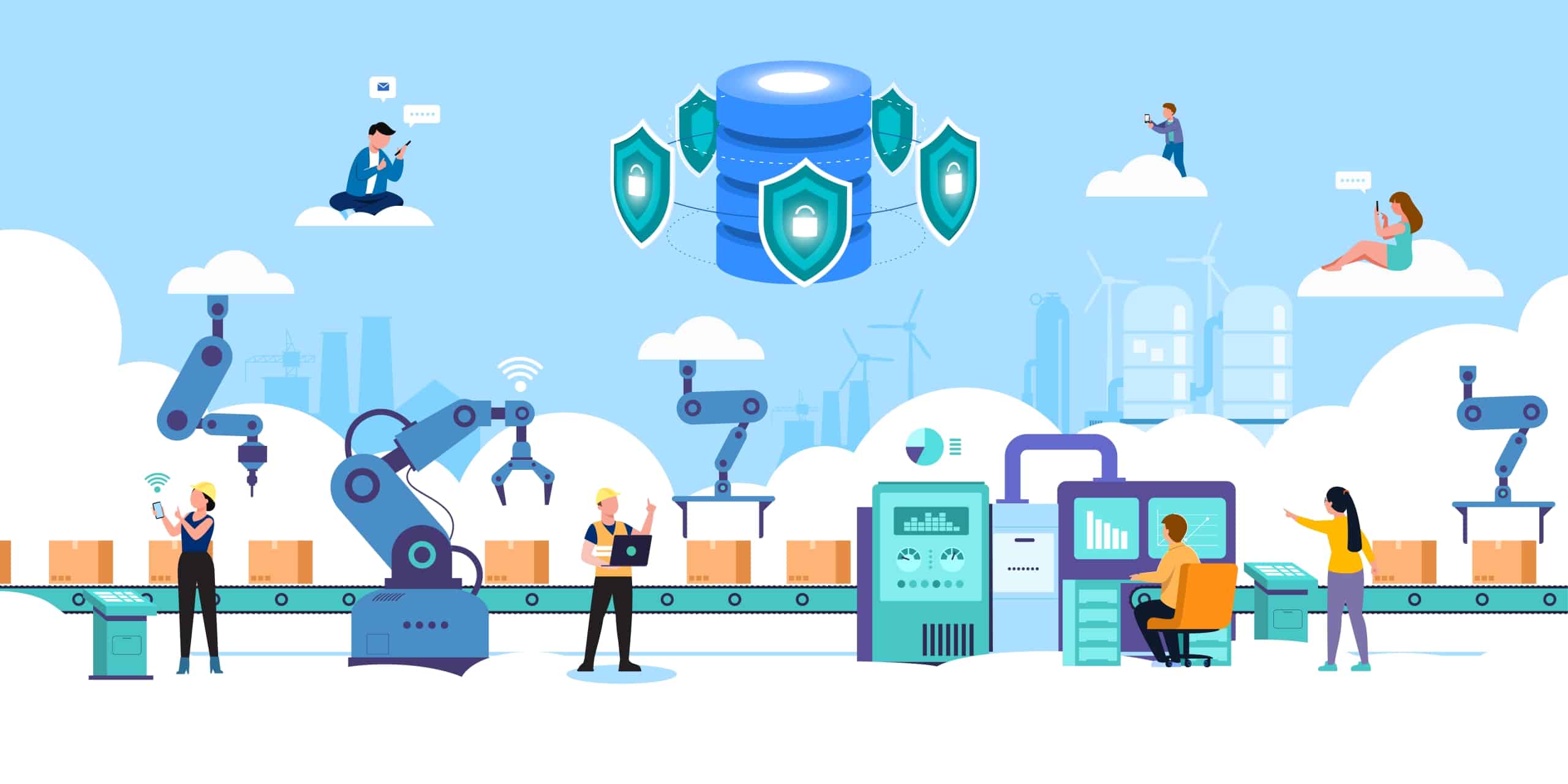1. Reducing Labor Exploitation Through Automation
Labor exploitation in conventional industrial settings is a major problem, especially in fields where repetitive manual activities are performed by low-skilled workers who are often given inadequate wages. The manufacturing of wet wipes, which includes labor-intensive procedures such as cutting, folding, and packing, has always included long hours and physically taxing labor. These laborers often face unfavorable working conditions, low pay, and few or nonexistent benefits. Automation is more important than ever since businesses are held responsible for their employees’ well-being as ethical business practices gain international prominence.
By taking over the most labor-intensive processes, advanced automation in the wet wipes production process reduces the need for human labor. From material feeding to product assembly, automated robots take care of it all, guaranteeing a reliable, high-quality output while relieving human workers of tedious and sometimes hazardous jobs. This change increases production efficiency and enables wet wipes manufacturers to provide specialized, higher-paying positions centered on machine maintenance, supervision, and operation. Businesses may reduce the possibility of exploitation and enhance employee well-being by transferring employees to more specialized jobs.
Automated wet wipes machines can contribute to ethical manufacturing by increasing accountability and transparency. Businesses can track each step of manufacturing using sophisticated monitoring systems, guaranteeing that human labor is only employed when required and following ethical labor practices. By being transparent, wet wipes manufacturers may demonstrate their dedication to moral business practices and win over customers and staff members. In the end, automation is a means to advance equity, enhance working conditions, and conform to contemporary standards of corporate responsibility, not only a means of boosting productivity.
2. Minimizing Environmental Impact with Energy-Efficient Machines
Wet wipes manufacturers are under pressure to lessen their ecological impact as environmental concerns rise. The manufacturing of traditional wet wipes requires a lot of resources, including energy and trash. This increases carbon footprint, putting firms’ reputations and the environment in danger. Businesses that ignore sustainability risk losing market share as customers become increasingly ecologically conscientious. Energy-efficient equipment provides a vital option, enabling wet wipes manufacturers to lower energy costs without sacrificing quality requirements.
Energy efficiency is a top priority in the design of contemporary wet wipes machines. These devices monitor and control power consumption throughout the manufacturing line by using cutting-edge technology including intelligent sensors, artificial intelligence (AI)-powered workflows, and energy-efficient motors. This reduces waste by ensuring that energy is only utilized when required. Automated systems, for instance, may modify production speed in response to demand, cutting down on idle time and energy use. To further reduce total energy usage, many wet wipes machines now have heat recovery systems installed, which reuse extra energy produced during manufacturing. These technologies drastically lessen the environmental effect of the production of wet wipes while simultaneously lowering operational expenses.
These wet wipes machines reduce waste in addition to using less energy by maximizing the utilization of raw materials and reducing manufacturing mistakes. Wet wipes manufacturers may now more effectively use recycled or biodegradable materials, guaranteeing that manufacturing complies with eco-friendly regulations. Additionally, fewer flaws are produced by energy-efficient machinery, which lessens the need to reject defective goods. These wet wipes machines enable wet wipes manufacturers to develop sustainably and comply with ever-tougher environmental standards by reducing waste and carbon emissions. Long-term, adopting eco-friendly procedures helps the environment and establishes businesses as pioneers of ethical production.
3. Supporting Fair Trade and Ethical Sourcing
Customers are becoming more conscious of fair trade and ethical sourcing, and they are beginning to demand transparency from the goods they buy. Wet wipes manufacturers are now under pressure to ensure that the suppliers of their raw materials—cotton and cellulose fibers, for example—adhere to ethical standards including fair salaries, secure working environments, and ecologically friendly farming. By endorsing fair trade, wet wipes manufacturers reflect the ideals of more aware customers while also improving the lives of workers in their supply chain.
Modern wet wipes machines are designed to accommodate a broad range of sustainably produced materials to encourage ethical sourcing. These wet wipes machines may be adapted to work with raw materials that adhere to ethical and fair trade norms, whether it is organic cotton, biodegradable fibers, or recycled materials. Now, wet wipes manufacturers can create premium wet wipes without compromising performance or sustainability, guaranteeing that each product represents ethical sourcing methods. Additionally, wet wipes machines may be adjusted to handle materials with lower environmental effects, such as plant-based or biodegradable fibers, allowing wet wipes manufacturers to satisfy the increasing consumer demand for environmentally friendly goods.
To stand out in a crowded market, wet wipes manufacturers include fair trade principles in their manufacturing methods. In addition to helping businesses comply with regulations, ethical sourcing strengthens ties with customers who place a high value on social responsibility. Customer loyalty is further enhanced by marketing and brand narrative possibilities that are created by transparent supplier chains that prioritize fair labor standards. In the end, wet wipes manufacturers earn a good reputation in the industry and contribute to a more equitable global economy by making investments in materials obtained ethically and cutting-edge gear that supports these activities.
4. Advanced Waste Management and Recycling Integration
In the manufacture of wet wipes, waste management has always been a problem since high production volumes sometimes result in substantial material waste. This covers extra fiber trimmings, faulty merchandise, and packaging that cannot be recycled. Wet wipes manufacturers are under growing pressure to reduce waste and enhance recycling procedures as environmental rules become more stringent and customers want more sustainable goods. More sophisticated wet wipes machines now include integrated waste management systems, which lower production waste and incorporate recycling into the wet wipes manufacturing process.
By using precise cutting and folding mechanisms that maximize material use, these sophisticated wet wipes machines are designed to reduce waste from raw materials. To reduce extra trims and off-cuts, automated systems, for example, may determine the precise quantity of fabric required for each wipe. Furthermore, sophisticated sensors identify flaws early in the wet wipes manufacturing process, enabling defective goods to be fixed or reused before they get to the packing stage. Because of the total waste reduction that results from this degree of accuracy, wet wipes manufacturers can reduce their environmental effect while simultaneously enhancing production efficiency.
Integration of recycling is yet another essential component of contemporary wet wipes equipment. Certain equipment is made specifically to process recycled materials, allowing producers to recycle trash back into the manufacturing process. One way to lessen the requirement for virgin materials is to collect, clean, and reuse surplus fiber waste in fresh batches. Furthermore, a lot of equipment is capable of processing compostable and biodegradable materials, so wet wipes manufacturers may make wet wipes that meet environmental requirements. Wet wipes businesses may reduce landfill waste, satisfy sustainability standards, and attract environmentally concerned customers by putting these cutting-edge waste management and recycling solutions into place.
5. Enhancing Transparency and Ethical Accountability with Data Analytics
Many businesses are looking to data analytics to get insight into each step of their production process as the need for transparency in wet wipes manufacturing increases. Integrating data analytics into equipment increases operational efficiency, accountability, and transparency for wet wipes makers. Businesses may make sure they are adhering to moral and environmental standards by monitoring and evaluating real-time data from production lines. This helps them to satisfy legal obligations as well as customer expectations for ethical business operations.
Wet wipes manufacturers can keep an eye on vital parts of production, such as energy use, material utilization, and waste creation, with the help of data analytics. This information gives a clear picture of how resources are utilized and how manufacturing methods impact the environment and workers, which may be used to guarantee compliance with labor laws and ethical sourcing practices. Wet wipes manufacturers may also confirm that their supply chains are following fair trade guidelines by using real-time tracking, which guarantees that fair and humane labor practices and ethically sourced products are used. Companies may clearly express their ethical convictions to customers and build trust and brand loyalty by maintaining this degree of openness.
Data analytics are essential for production optimization that goes beyond compliance and toward sustainability. Cutting-edge technologies can spot inefficiencies in the production process, including excessive energy use or material waste, and provide useful suggestions on how to make improvements. Wet wipes manufacturers may optimize their operations to save waste, use less energy, and leave a smaller overall environmental impact by using these insights. This strengthens the company’s ethical responsibility and establishes it as a pioneer in ethical, data-driven production. In the end, data analytics enable wet wipes manufacturers to expand their businesses while maintaining the greatest levels of morality and environmental stewardship.






